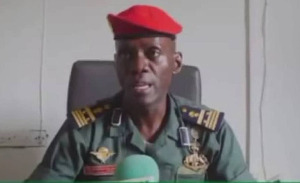They were arrested for possession and illegal marketing of skulls from chimpanzees and gorillas.
The departmental delegation of forests and wildlife of the Valley of Ntem, southern region, arrested a man of 38 years and an elderly woman of 42 years engaged in the traffic of skulls from chimpanzees and gorillas.
The main suspect of the network activities was particularly followed over a period of time. Sources close to the case reported that the operation that led to his arrest was a success thanks to the collaboration of those who provided valuable information relatively to the activities of the trafficker.
On 1st October, the pair, from Meyo-Centre, arrived at the bus station of Ambam, with in a travel bag having 5 skulls from chimpanzees, a gorilla skull and a pair of antelope horns. Not suspecting anything, the duo made several calls certainly to a buyer.
Our sources specify that this operation that led to their arrest was made in collaboration with the Prosecutor of the Republic, the gendarmerie at Ambam and with technical assistance from the Organization LAGA, specializing in the application of the Wildlife Act.
In any case, all this occurs after a call made recently by the regional Commissioner of forests and wildlife, Maya Maya Pierre for the intensification of the anti-crime of wildlife at the last meeting of the regional Committee of anti-poaching held in Ebolowa.
M.Obam Maya had then urged his staff to track down any trafficker who went against the wildlife law in Cameroon.
"To discourage traffickers, we need to carry out operations, because there is a law that must be respected and those who do not respect the law must be neutralized.
"They need to get closer to wildlife officials to understand the regulations in force," also declared Jacques Pouhe. And the worst is to come, because he indicated that the judicial process was set in motion to prosecute, in accordance with the provisions of the Wildlife Act of 1994 which stipulate that anyone found in possession of parts of protected wildlife is deemed to have captured or killed it.
Actualités of Saturday, 11 October 2014
Source: La Meteo













